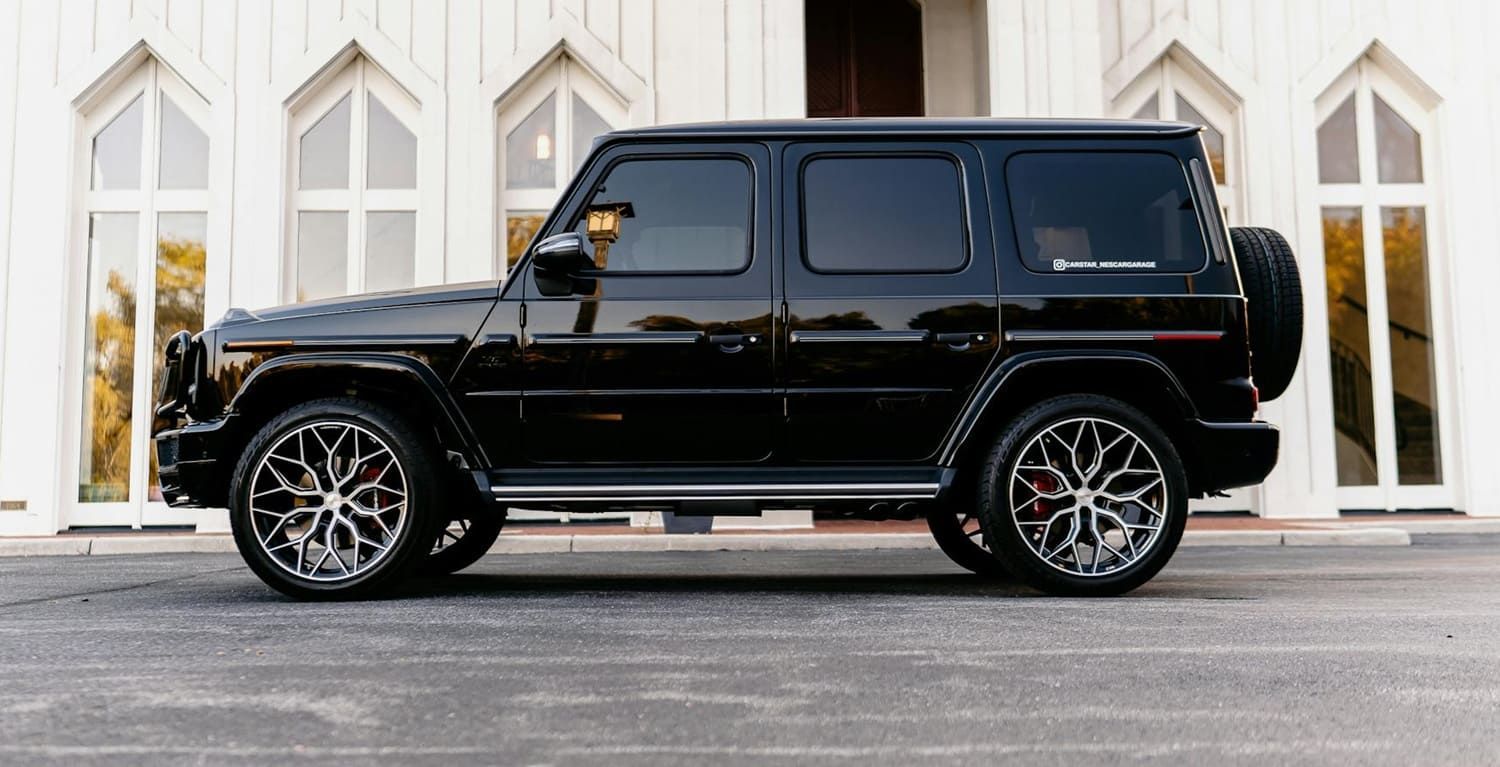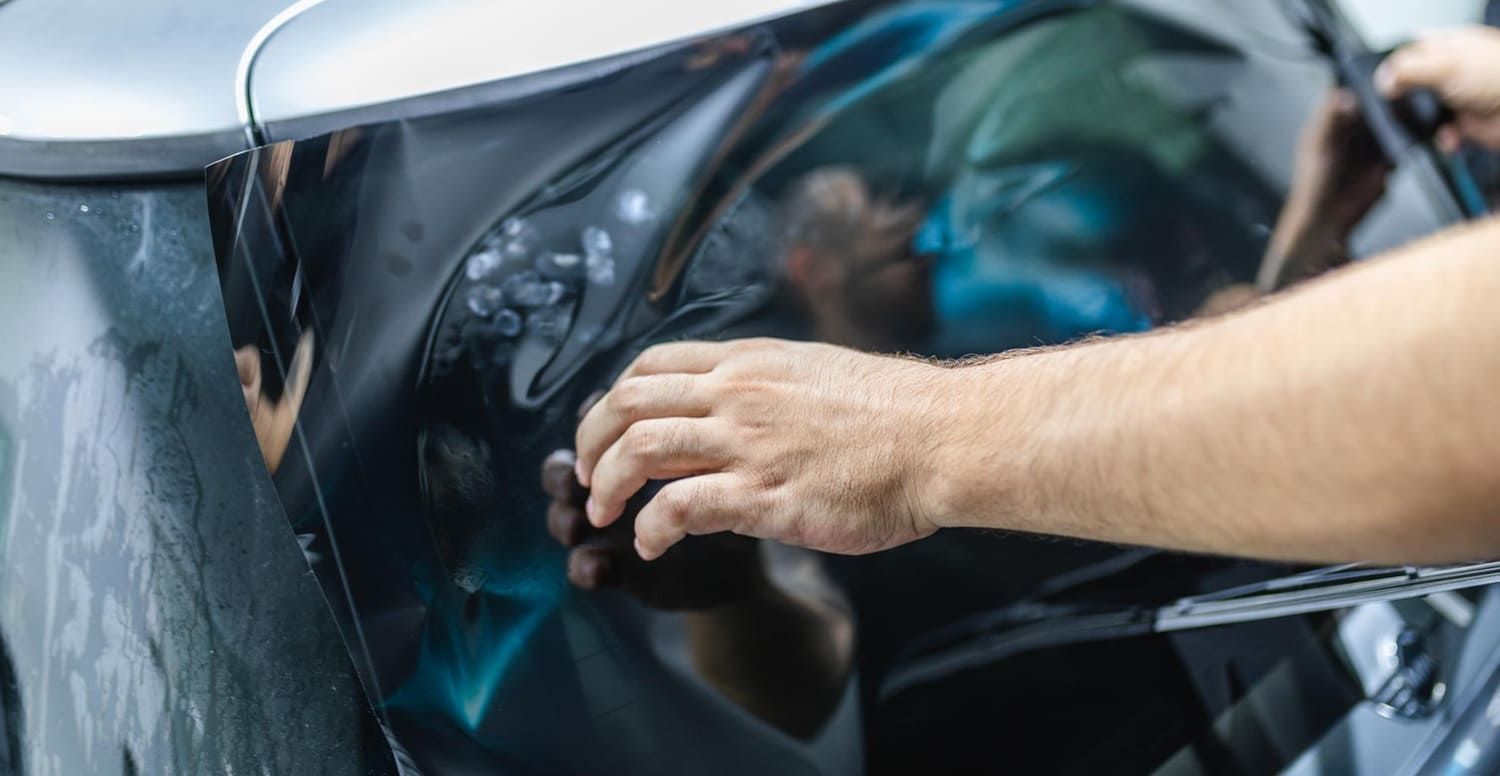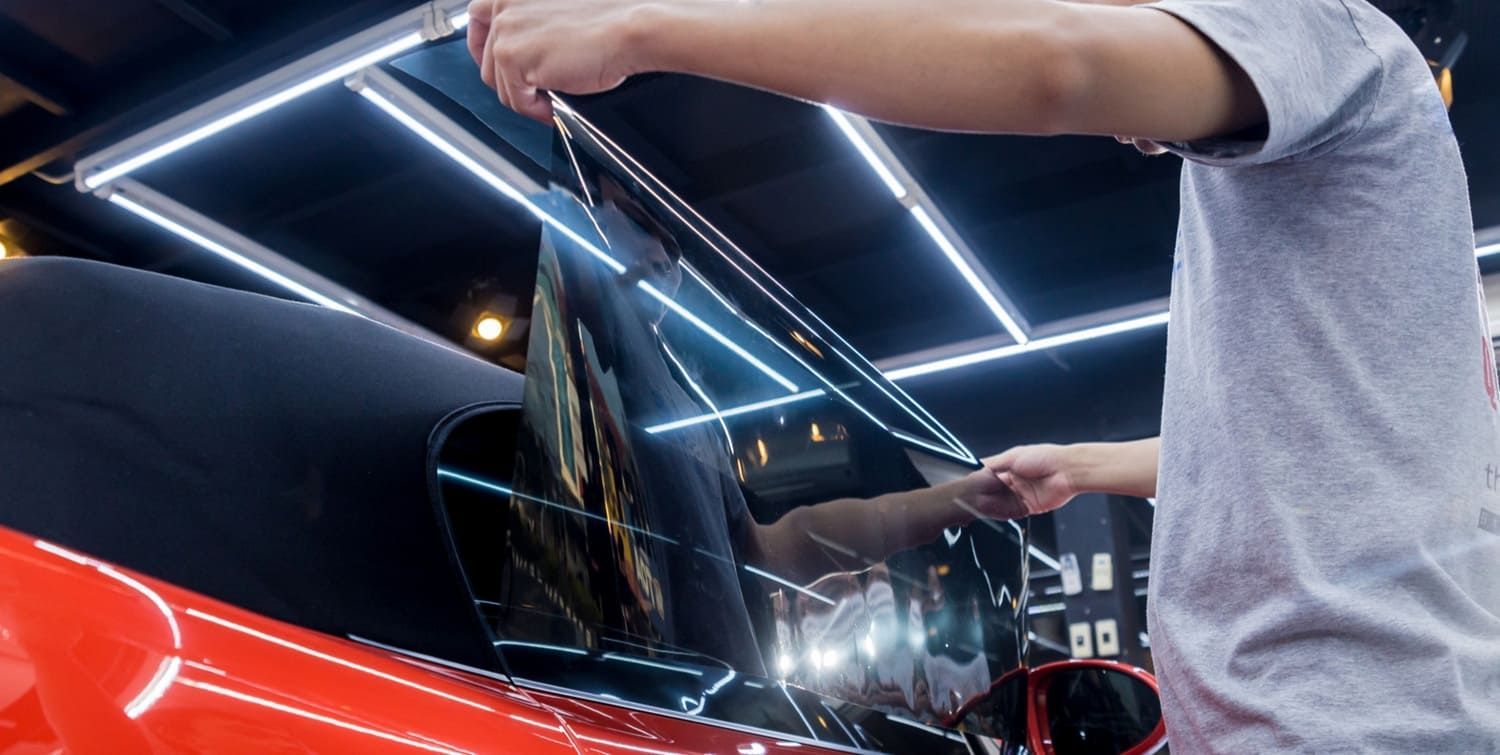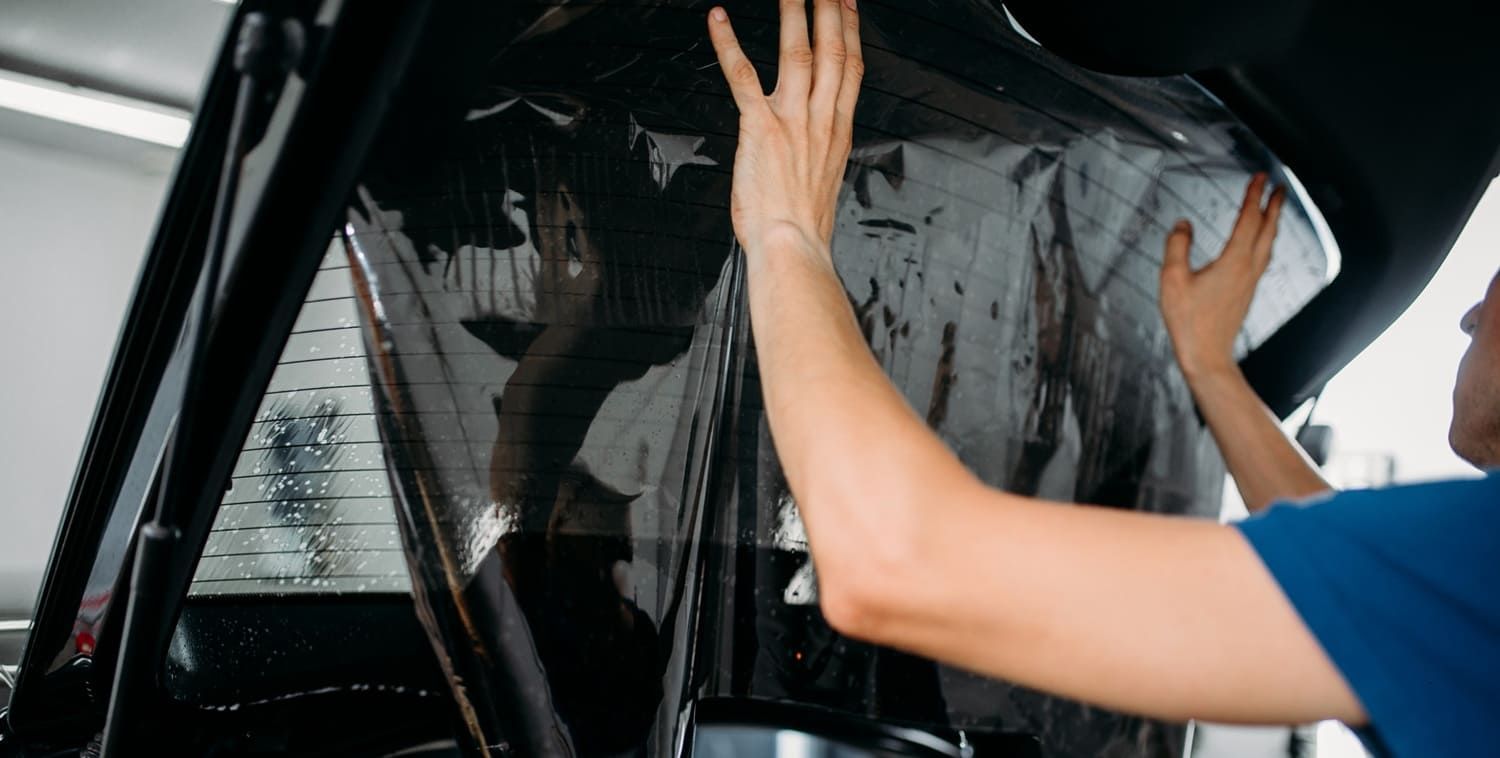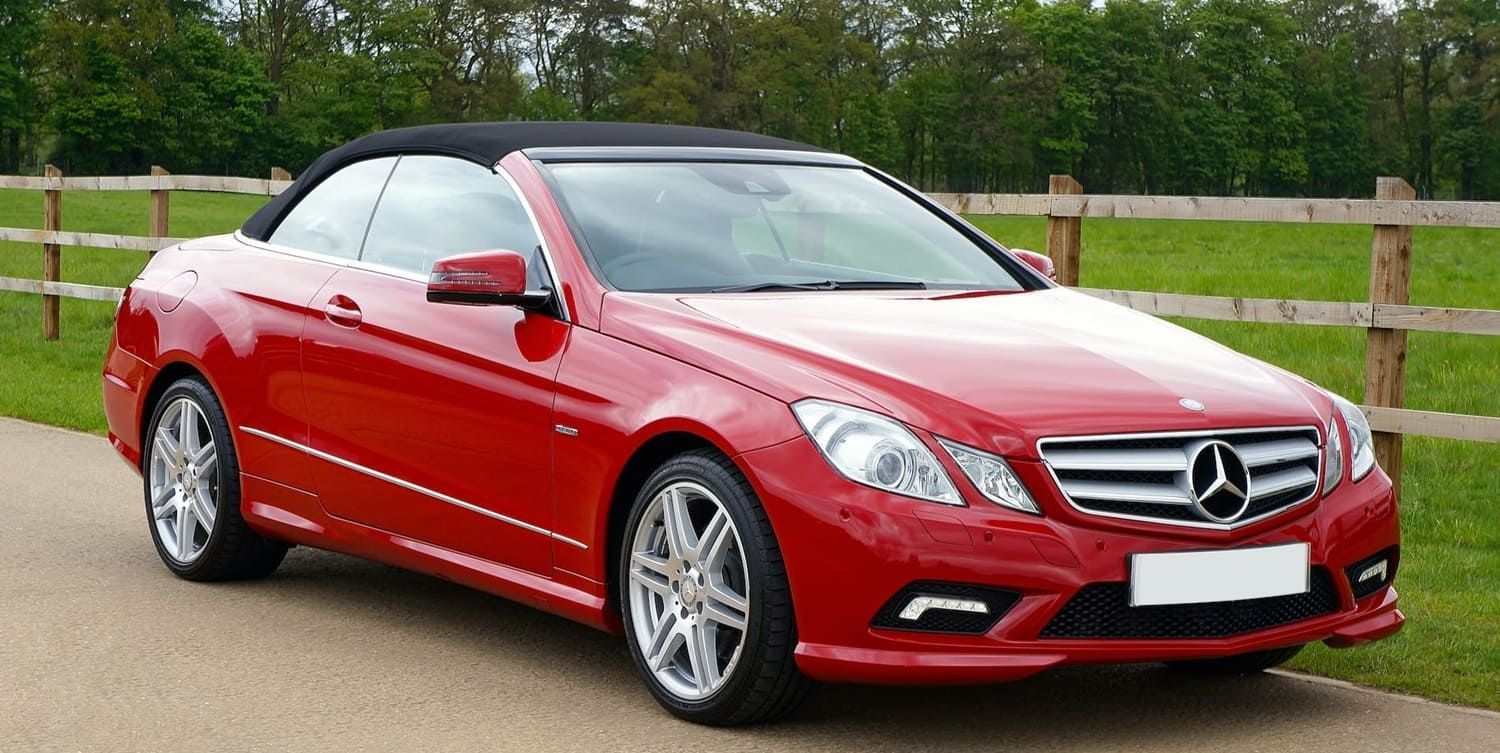Understanding Virginia Auto Window Tint Laws in 2026
Navigating the world of car window tint can be tricky. Virginia auto window tint laws are no exception.
In 2026, these laws continue to evolve. They aim to balance safety, privacy, and aesthetics.
Understanding these regulations is crucial for Virginia drivers. It ensures compliance and avoids penalties.
This guide will help you grasp the essentials. We'll cover legal tint percentages and medical exemptions.
You'll also learn about the benefits of tinting. From UV protection to enhanced privacy, the advantages are numerous.
Stay informed and drive safely with our comprehensive overview of Virginia's tint laws.

Overview of Virginia Auto Window Tint Laws
Virginia auto window tint laws cover several important aspects. They regulate darkness levels and reflectivity. This helps maintain safety on the roads.
Legal requirements vary by vehicle type and window location. Understanding these differences is essential for compliance.
Here's a quick overview of key Virginia tint laws:
- Front side windows: Maximum 50% tint allowed.
- Rear side windows and back window: Up to 35% tint.
- Windshield: Tint permitted only on the top 5 inches or above AS-1 line.
These laws aim to provide clear visibility for drivers. They ensure that all vehicles meet safety standards.
Staying updated with changes is crucial. Virginia Department of Motor Vehicles often reviews these regulations.
Legal Tint Percentages and VLT Requirements
Virginia's tint laws focus on Visible Light Transmission (VLT). This measurement indicates how much light passes through the tint. Each type of window has specific VLT requirements.
Vehicles must adhere to these limits for legal compliance. Front side windows need a VLT of at least 50%. Rear side and back windows can have a VLT of 35%.
Adhering to these standards ensures optimal driver visibility. This reduces the risk of accidents due to impaired vision. The regulations reflect a balance between personal privacy and road safety.
Here are the VLT requirements for each window type:
- Front side windows: 50% VLT minimum.
- Rear side windows: 35% VLT minimum.
- Back window: 35% VLT minimum.
Non-compliance can result in fines or required removal of tint. Stay informed about the latest VLT rules. Consider consulting a professional to meet the legal standards.
Front Side Windows
For front side windows, the legal tint percentage is strict. Virginia law allows a maximum of 50% tint. This ensures sufficient light enters, maintaining driver visibility.
Strict enforcement helps prevent accidents. Authorities stress the importance of adhering to this rule. A professional installer can help ensure compliance.
Rear Side and Back Windows
Rear side windows and the back window have relaxed rules. The allowed tint darkness is up to 35%. These windows provide more privacy without compromising safety.
The regulations also apply during inspections. Compliance with this percentage is essential. Proper understanding prevents legal issues and enhances vehicle aesthetics.
Windshield Tinting Rules
Windshield tinting has unique restrictions. Tint is only permitted on the topmost 5 inches. Alternatively, it can be applied above the AS-1 line.
These rules prevent glare and enhance visibility. Driver and passenger safety are the top priorities. Compliance ensures a clear view of the road at all times.
Reflective Tint and Color Restrictions
Reflective tints are strictly regulated in Virginia. This is to prevent excessive glare that can distract other drivers. High-reflectivity films are not allowed on any vehicle windows.
The intent is to keep roads safe and visible. It's crucial to know these restrictions before choosing a tint. Reflective surfaces can cause visual hazards.
In addition to reflectivity, tint colors are subject to limitations. Virginia restricts certain colors that may obstruct visibility or confuse other drivers.
- Reflective tint: Not permitted on any vehicle window.
- Color restrictions: Certain colors prohibited for safety reasons.
These rules align with safety standards and visibility needs. Understanding them helps avoid penalties and maintains compliance.
Medical Exemptions and Special Permits
Virginia allows medical exemptions for certain tint laws. These exemptions are crucial for individuals with health conditions. Tinted windows can help manage light sensitivity or skin issues.
To qualify, a driver's physician must provide documentation. This documentation is essential for legal compliance. Once obtained, it must be kept in the vehicle at all times.
Vehicles with medical exemptions are still subject to certain rules. Documentation must be presented during inspections or if requested by law enforcement. Without proper documentation, exemptions are invalid.
To ensure compliance with Virginia tint laws, follow these steps:
- Obtain a physician's statement for the medical need.
- Apply for the exemption through the Virginia DMV.
- Carry approved documentation in your vehicle.
These steps help ensure safe and compliant driving for exempted individuals.
Enforcement, Inspections, and Penalties
Virginia strictly enforces auto window tint laws. Law enforcement officers routinely check tint levels. It's important to comply during all vehicle stops.
Tint levels are also inspected during annual vehicle inspections. Failing the inspection due to illegal tint can result in a fine. Non-compliance may require removing or adjusting the tint.
Penalties for violating tint laws can be significant. Fines can increase for repeat offenses. The risk of penalties highlights the importance of adherence to the law.
To stay compliant, drivers should:
- Verify that tints meet legal standards.
- Keep inspection and exemption documentation handy.
- Ensure professional installation and accurate measurement.
These steps help avoid fines and ensure safe driving in Virginia. Staying informed about tint law updates is equally important.
Benefits of Car Window Tinting
Car window tinting offers multiple advantages beyond aesthetics. One primary benefit is the significant reduction of heat inside the vehicle. Tinted windows help block out solar heat, making the car cooler in the summer months.
Tinted windows also enhance privacy and security. They obscure the view into the vehicle, protecting personal belongings from prying eyes. This feature can deter potential thefts and provide a sense of safety.
Another advantage of window tinting is UV protection. Quality tints can block harmful UV rays, reducing the risk of skin damage. This protection also extends the lifespan of a car's interior by preventing fading and cracking.
The key benefits include:
- Heat reduction
- Enhanced privacy
- UV protection
- Improved interior preservation
Incorporating window tinting into your vehicle can also lead to greater comfort during drives. By lowering glare from the sun and headlights, driving becomes less stressful and more enjoyable.

Applied Film Technology: Modern Tinting Solutions
Modern tinting solutions have evolved significantly, thanks to Applied Film Technology. This technology offers advanced film options for vehicle owners. These options not only improve aesthetics but also enhance functionality.
One key innovation is the development of ceramic films. These films provide superior heat rejection without affecting visibility. They are effective in blocking UV rays and reducing glare significantly, making them highly popular among drivers.
Applied Film Technology also includes metalized and hybrid films, which offer additional strength and durability. These films add a metallic sheen to your windows while enhancing scratch resistance.
Key advantages of modern films include:
- Superior heat rejection
- Enhanced UV protection
- Increased durability
Choosing the Right Tint: Types and Professional Installation
Selecting the appropriate window tint involves considering several factors. Tint types vary in appearance, functionality, and cost. It's essential to choose a tint that balances personal taste and legal compliance.
Dyed tints are popular for their affordability and privacy enhancement. However, they may fade over time. Metalized tints provide a metallic look with added durability, but they can interfere with electronic signals.
Professional installation is vital for ensuring quality and compliance with virginia tint laws. Experts possess the skills to apply tint films accurately, avoiding bubbles or peeling.
Types of tints include:
- Dyed
- Metalized
- Ceramic
Professional installation not only ensures a flawless finish but also maximizes the benefits of your chosen tint. Seeking expert advice helps in selecting a tint type that meets legal requirements.
Frequently Asked Questions About Virginia Tint Laws in 2026
What are the legal limits for auto window tint darkness in Virginia in 2026?
In Virginia, front side windows must allow at least 50% of light in, while back side windows and rear windows have more lenient limits depending on vehicle type. The windshield can only have non-reflective tint above the manufacturer's AS-1 line. These limits ensure driver visibility and law enforcement safety.
Are there different window tint rules for SUVs and vans in Virginia?
Yes, SUVs and vans have different tinting allowances. For example, back and rear windows can have any darkness, while front side windows must still allow at least 50% visible light transmission (VLT).
Can I have reflective or mirrored window tint on my car in Virginia?
No, reflective or mirrored tint films are illegal on both front and back windows in Virginia due to safety regulations.
What are the penalties for violating Virginia window tint laws?
First offenses are Class 3 misdemeanors with fines up to $500, while second or subsequent offenses can be Class 2 misdemeanors with fines up to $1,000 and possible jail time of up to six months.
Are medical exemptions available for auto window tinting in Virginia?
Yes, individuals with qualifying medical conditions can apply for exemptions allowing darker tint levels, such as 35% VLT on front side windows.
How can I check if my car window tint complies with Virginia law?
You can measure the visible light transmission (VLT) percentage of your tint using a tint meter or visit a professional installer who can verify compliance.
Why does Virginia regulate window tint darkness?
The laws balance driver comfort and privacy with safety concerns, especially ensuring police can see inside vehicles during stops and drivers have clear visibility to prevent accidents.
Can window tint laws change often in Virginia?
Yes, it's important to stay updated as laws may change with new technology or safety concerns. Checking the Virginia DMV or trusted tint professionals regularly is recommended.
Staying Compliant: Tips and Resources for Virginia Drivers
Staying up-to-date with virginia tint laws is essential for all drivers. Regularly checking for updates can help prevent legal issues.
Consulting the Virginia Department of Motor Vehicles is one way to stay informed. They provide updated guidelines on virginia auto window tint laws 2026.
Here are some tips and resources:
- Refer to the Virginia DMV website.
- Consult a professional tint installer.
- Keep medical exemption documents handy.
Being proactive ensures compliance and enhances your driving experience. Professional advice can save you from potential penalties.
Conclusion: Safe, Legal, and Comfortable Driving in 2026
Adhering to Virginia tint laws is essential for maintaining safety and compliance on the road. At Applied Film Technology in Virginia Beach, Virginia, a Trusted LLumar Dealer and one of the best car window tinting installers near you, we specialize in professional installations that enhance your vehicle’s comfort, privacy, and style while staying fully compliant with state regulations.
Understanding and applying Virginia’s tint laws helps ensure a comfortable and safe driving experience for you and others on the road. With expert guidance from Applied Film Technology, you can choose the right LLumar window film that meets legal standards without compromising performance or aesthetics.
Staying informed about local regulations not only protects you from fines but also safeguards your investment. A properly tinted vehicle offers the perfect balance of style, privacy, and functionality, all while adhering to the law.
Contact Applied Film Technology in Virginia Beach, Virginia today for your free estimate and let our team help you select the ideal LLumar tint that enhances your driving experience while keeping your vehicle fully compliant with Virginia tint laws.



